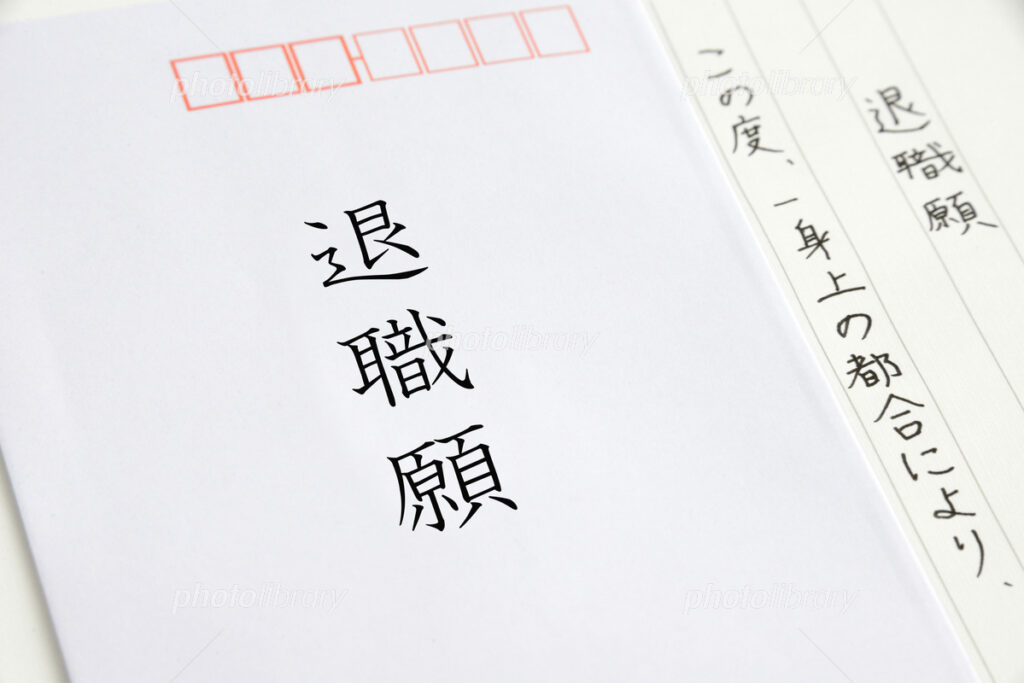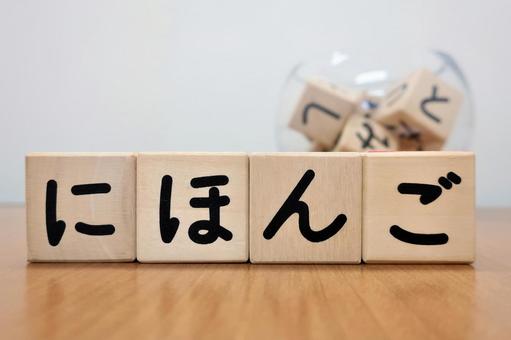2023.1.8
How to pass the application screening process at a Japanese company

In the job search process, there are many steps that must be completed before a job offer can be made, such as applying to a company, passing the document screening process, going through the first round of interviews, and going through the second round of interviews.
In fact, whether or not a company will give a job offer to a candidate is almost determined at the document screening stage.
The company will review the resume of the applicant to determine whether or not the they will be successful, whether or not the they fit the corporate culture, and so on.
They will then meet the applicant in person and discuss his/her personality, first impressions, Japanese language ability, and other factors to make a decision.
This article will provide a detailed explanation of the types of people who receive an official job offer at the time of the screening process.
While it is relatively advantageous for people who match the following criteria to change jobs, please do not be careless and study Japanese carefully to prepare yourself for the Japanese interview.
Academic background

(In Japan, the academic background was the key to the success of the changing jobs (although it is different nowadays).
It was said that graduates of good universities would be able to find employment in large companies.
Academic credentials are an important employment guideline in the selection process.
In fact, many companies employ a large number of science graduates from prestigious universities.
In the case of Japanese nationals, the place where they are assigned to work after entering the company is to some extent determined by what they majored in.
Humanities graduate:mainly in sales
Sciencegraduate:marketing, accounting jobs, etc.
The reason why companies hire highly educated people is because they believe that a good head on their shoulders will enable them to do the job.
For example, in Japan, a graduate of a university with a high deviation score, such as the University of Tokyo, will have a great advantage when changing jobs.
However, you don’t have to be a graduate of a prestigious university.
In Japan, people with qualifications that can be used in the workplace, such as TOEIC and CAD, are given preferential treatment, so those without academic qualifications should acquire as many qualifications as possible.
Once you are in the workforce, your educational background has nothing to do with it.
There are people who graduated from Tokyo University but cannot do their jobs, and there are people who graduated from junior high school but became presidents and made a lot of money.
They have studied hard by obtaining qualifications related to their work and reading many books on management and business administration.
If they are able to study for business, rather than for school, there is no problem at all.
Number of job changes

Japanese companies give preference in hiring to those who have worked for one company for more than three years.
Those who repeatedly leave their jobs after less than one year are at a disadvantage when changing jobs.
In other countries, it is said that if you work at your current company for more than one year, you can change jobs to advance your career.
In Japan, new employees are trained for about five years, spending time and money.
It would be very troublesome for the company if you quit immediately after joining the company.
Even if you have improved your career by changing jobs, if you have changed jobs more than four times, you will be rejected in the document screening process.
The reason for this is that even if the company recruits the employee, they will be judged as quitting after one year, and the company will waste time and money.
Even if your number of job changes is more than 4, you are fine.
Let’s give a clear explanation of why you have changed jobs four times and how you have improved your skills.
The following is a list of positive reasons for changing jobs.
【Changing jobs in a different occupation】
転職したことで様々な経験ができ、能力が伸びました。新しい会社ではひとつの部署だけでなくマーケティングや、人事などマルチに活躍できます。
I have gained a variety of experiences and enhanced my abilities through my new job. In my new company, I will be able to work not only in one department, but also in marketing, human resources, and other areas.
【Changing jobs in a different industry】
どの会社でも営業成績がトップだったため、別の業界で新たな商品を販売してみたいと思いまいた。
I had the top sales performance in every company I worked for, and I wanted to try selling a new product in a different industry.
Please ask a Japanese national to confirm the reason for your job change.
The positive reasons for changing jobs that you are considering may be negative or unintelligible to Japanese people.
Again, even if you have changed jobs four times, please give a positive reason for changing jobs, such as improving your skills or wanting to work in a better environment.
Age

When changing jobs in Japan, it is best to do so as soon as possible.
The younger you are, the more advantageous it is for you to change jobs.
This is because Japanese companies employ young people and train them to become executive employees.
Please note that not all people change jobs at a young age, and that there are many different cases.
Here are some tips on when to change jobs.
In case of inexperience
Change jobs by the age of 25 (N1 required).
In the case of experienced workers (changing jobs to the same type of business)
If you have more than 5 years of work experience, you should change jobs by the time you turn 30.
If you are an expert
If you have more than 10 years of work experience and management experience, you should change jobs by the age of 40.
In Japan, there is an age limit for changing jobs, and the job offer rate drops dramatically after the age of 35.
Of course, if a person’s market value is high, the employment rate will increase.
If you are over 35 years old, that’s fine.
When hiring foreigners, experience is more important than age.
The older the age, the longer the work experience, and the more time you spend in the field.
Young professionals in their 20’s with N2 or above
N3 level but with more than 10 years of work experience
The rate of job offers has not changed much.
However, it is necessary to pay attention to cases in which the age and experience years are not in proportion to each other.
For example, suppose that the first company has a sales career (3 years), the second company has an IT engineer (2 years), and the third company has a factory experience (4 years).
You have a total of 9 years of work experience, but only 2 years as an IT engineer.
If you work for 9 years, you will be 31 years old, and it is very difficult to get a new job in IT unless you are in your 30s and have only 2 years of experience.
To find out when it is the right time to change jobs, contact a career change agent.
They will give you detailed instructions on when to change jobs.
Visa

If you are a permanent resident, a long-term resident, or a spouse visa holder, the employment rate is high.
This is because visas such as permanent resident visas have no work restrictions and allow the holder to work at any job in the same manner as Japanese nationals.
For those who wish to work as engineers or other professionals, 技術・人文知識・国際業務 are also acceptable.
In the case of visas with work restrictions such as student visa, specific skills visa, and specific activities visa, it is necessary for the company to obtain the visa.
There is no guarantee that a visa will be granted 100% of the time, which makes it difficult for companies to recruit.
If your visa has work restrictions such as student visa, specific skills visa, or specific activities visa, you will be fine.
Acquire many qualifications related to your work and further develop your knowledge base.
Also, polish up your technical skills to the fullest.
If your market value is high, companies will actively seek to hire you even if you do not have a visa.
Of course, a high level of Japanese is also necessary, so if you do not have a work visa, you should take N1.
JLPT

To work for a Japanese company, JLPT N2 or above is a must.
If you do not have N2 or higher, the number of job openings you can apply for will be reduced.
If there are 100 companies recruiting human resources, only 10 of them allow foreign nationals to apply for jobs.
Of the 10 companies, N2 holders can apply for 4 companies and N1 holders can apply for 5 companies.
Unfortunately, those who have N3 or above will be rejected in the document screening process.
In most cases, the job application form of a company that recruits foreign nationals will state “N1 required” as a condition for application.
In other words, companies are not looking for people with N3 or above, but are hiring at the N1 level.
If you don’t have N1, that’s okay.
Polish up your skills.
Even if you currently have N1, you will not be hired if you have less than 3 years of experience.
If you have at least 5 years of experience at the N3 level and have a high level of technical skills, you will be considered for the position.
It is a common misunderstanding among foreigners who are good at Japanese, but if they pass N1 but do not have the skills or have only one year of practical experience, the market value is quite low.
Even if you pass N1, you will not be able to beat the Japanese.
The only way to survive is to compete on the basis of skills and technology.
Of course, it is important to acquire N2 or higher, but it is also important to develop your skills at the same time.
The type of foreign human resources that the company is most interested in hiring are those with at least 5 years of experience and a high skill level of N2 or higher.
You must obtain JLPT N2 before applying for a position with a company.
Conclusion

Let’s review again the main points about foreign human resources that Japanese companies want to hire.
The company will flag these candidates for employment during the screening process.
They will meet them in person to see their personalities and Japanese language skills.
①People with a high school education in science
②Smaller number of job changes (less than 4 job changes)
③Until the age of 35
④Worker visa holders
⑤People who have JLPT N2 or higher
These five items should be taken as reference only.
It does not necessarily mean that those who meet all of the conditions will be hired.
On the contrary, there are many people who do not fit all of the above criteria who have been employed.
If you are one of these people, please note the following points.
①people who are not highly educated
→ Get a lot of qualifications.
②Number of times you have changed jobs (4 or more times)
→ Tell them how you have improved your skills by changing jobs.
③People over 35 years old
→ Improve your skills.
④People who do not have a work visa
→ Learn the skills that the company is looking for.
⑤JLPT N2 for those who don’t have it
→ You should brush up on your skills.
Alternatively, consult with a professional about changing jobs.
Not only will we introduce you to a large number of job seekers, but we will also provide you with total support until you receive a job offer.

